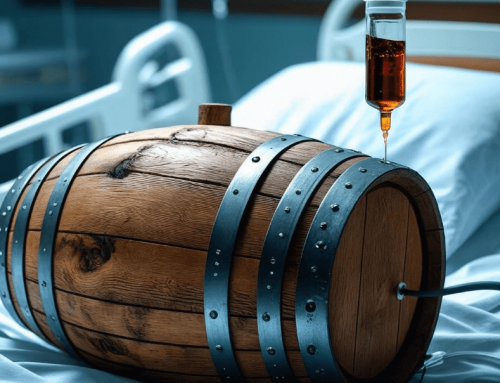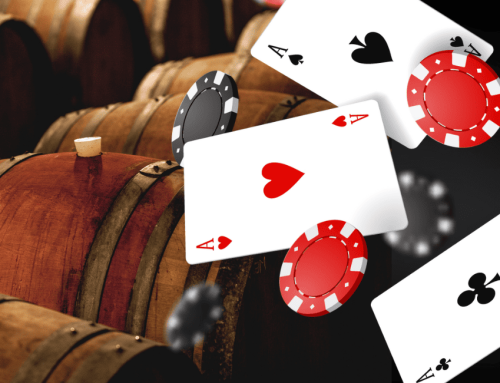Feedback from our industry peers and international clients suggests that many distillers are not particularly concerned about the tariffs — believing they “won’t be a problem” or won’t remain in effect long enough to matter.
While some tariffs are on the horizon, others have already taken effect, with their impact soon to be felt. As these tariffs begin to take hold, supply chain costs are expected to rise significantly, forcing distillers to grapple with higher operating expenses.
Distillers have limited options:
- Raising prices – which can lead to consumer resistance and potential loss of market share
- Absorbing the costs – placing strain on cash flow and profitability
- Reducing profit margins – which may compromise long-term financial stability
- Cutting expenses – a possibility, but this must be approached strategically to avoid unintended consequences
Currently, many producers are choosing to absorb the cost to shield consumers — but this is not a sustainable long-term strategy. Over time, it places significant pressure on profitability and business stability.
If history has shown us anything, it’s that tariffs can have severe consequences, and waiting to react often comes at a cost. Understanding their potential impact and taking proactive steps is vital to protecting your distillery. Here’s why:
History Has Already Shown Us the Impact
These risks aren’t hypothetical — they’ve happened before:
- In 2018, the EU implemented a 25% tariff on American whiskey, which resulted in a 20% drop in exports.
- Also in 2018, China imposed a 25% tariff on US wine, which caused a 29% decrease in exports that year for the US ($19.5 million export loss) and fell by a further $23 million in 2019.
- In 2019, Trump implemented a 25% tariff on single malt Scotch, which led to a 35% drop in exports and resulted in losses of over half a billion pounds in 18 months. This is roughly a loss of £1 million per day.
Why Tariffs Hit Harder Than You Think
Tariffs are often implemented to stimulate domestic industries and generate long-term economic gains. However, the short- and medium-term impact can be significantly disruptive, as they tend to create broad inflationary pressures and introduce volatility to the market.
Common implications include:
- Higher import costs on all tariffed goods
- Increased freight and logistics costs as global trade tensions impact transportation networks
- Decreased export competitiveness as retaliatory tariffs make products more expensive in international markets
- Long-term inflationary pressure that amplifies the original cost increases from tariffs and leads to rising expenses across all areas of production
While many distillers have absorbed the cost to protect their consumers, this approach is not sustainable in the long-run. Eventually, margins begin to erode, and business stability is put at risk.
Today’s Tariffs on Alcohol
In 2025, several alcohol-related tariffs have been introduced by the U.S., EU, China, and other major markets. While the full effect on distillers is still emerging, some of these tariffs have come into effect and are expected to remain in place.
Here’s a snapshot of what’s happening:
- The U.S. introduced a 25% tariff on Mexican and Canadian alcohol imports, and a 20% tariff on Chinese imports.
- China responded with a 15% tariff on U.S. wine, and more than doubled tariffs on vermouth (from 14% to 30%), as well as brandy and whiskey (5% to 10%).
- The EU threatened a 50% tariff on American whiskey.
- In turn, the U.S. threatened a 200% tariff on all EU alcohol.
Distillers are now facing multiple, overlapping tariffs. While the examples above focus specifically on the alcohol industry, they represent only a portion of the broader tariff landscape. Additional trade measures are being implemented across a range of industries.
As these tariffs take hold across multiple sectors, the cumulative effect is expected to drive costs higher on a global scale, placing even greater pressure on supply chains and overall business resilience.
So, What Can Distillers Do?
Raising selling prices, absorbing costs, or reducing profit margins are not the most sustainable solutions in the long run. Hence, looking for ways to lower production costs will be essential for long-term success. Below are the main components involved in spirits manufacturing—grains or liquid inputs, utilities, labor, packaging, freight, and barrels—each of which plays a distinct role in overall cost structure.

While most production costs leave little room to cut expenses, there is one key area of opportunity — your barrels. Barrels represent one of the largest ongoing expenses for distillers, and we’ve seen firsthand that when financial pressures mount, many distillers choose to reduce their annual barrel purchases or forgo buying new ones altogether. In these cases, distillers often rely on rejuvenation services, such as coopers, to extend the life of their barrels, but this approach remains costly and time-consuming.
Madeva: The Solution to Barrel Longevity
Madeva offers an innovative and cost-effective solution to increasing your barrels’ lifespans, whilst maintaining the quality of your spirits.
Think of Madeva as a reset button for your barrels. Madeva is a natural liquid oak extract that replenishes the essential oak compounds that aging naturally strips away in the barrel. By replenishing the key compounds, it enables your barrels to continue imparting the rich oak character that defines your spirits, cycle after cycle. With Madeva, you can extend barrel life, protect quality, and significantly reduce production costs.
Madeva helps you…
- Maximize Barrel Life – Extend the usable lifespan of your barrels by restoring depleted oak phenolics
- Cut Costs by Up to 75% – Reduce dependence on new barrels and expensive rejuvenation services
- Preserve Spirit Quality – Maintain the oaky complexity your consumers expect, even in older barrels
The Bottom Line: It’s Time to Take Action
Overall, distillers face an uncertain and challenging road ahead with rising production costs, shrinking export markets, and restrained consumers. While many of these pressures are beyond direct control, taking proactive steps now can make a significant difference.
Madeva offers a clear, cost-effective path forward — helping distillers stay competitive, protect margins, and continue delivering high-quality spirits in a time of uncertainty.
Protect your margins. Defend your market share. Preserve your craft.
Let’s move forward — with Madeva.






